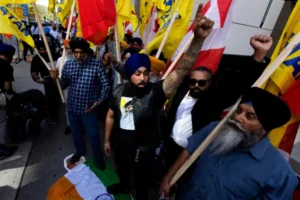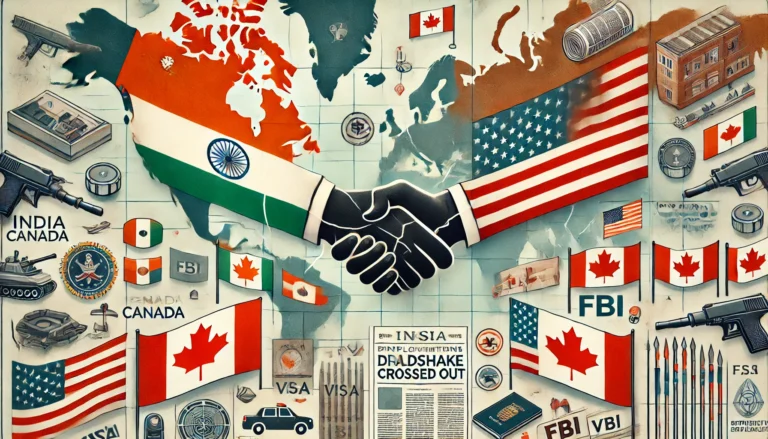India is now facing some very ugly diplomatic standoffs with Canada and the U.S., purportedly under pressure from a series of events related to the movements of the Sikh separatist. The recent diplomatic fallout has not only strained India-Canada relations but has also involved U.S. authorities, thereby complicating New Delhi’s efforts in foreign policy.
Canada-India Crisis: Fragmentation
The crisis began when Canadian Prime Minister Justin Trudeau accused Indian agents of being involved in the assassination of Hardeep
 Nijjar, a Sikh activist and Khalistan supporter, on Canadian soil. India responded by calling this a politically motivated allegation. Both countries started re
Nijjar, a Sikh activist and Khalistan supporter, on Canadian soil. India responded by calling this a politically motivated allegation. Both countries started re
taliating by expelling diplomats and freezing consular services, thus disturbing relations that affect students, travelers, and businesses.
While India has been protesting the extremist activities of certain Sikh diaspora groups in Canada for years, the Trudeau government did not act to diffuse these tensions-an issue that threatens to overshadow India’s international aspirations as, according to diplomatic analysts, the aftermath will be seen as a weakening of India’s potential to forge alliances with Western nations and continue to propel its influence on the world stage.
FBI Prevents Murder Plot Against a U.S. Gurdwara Activist
The diplomatic headaches of India had just worsened as it has come forth that through U.S. prosecutors there was a murder-for-hire plot for the killing of Gurpatwant Singh Pannun, a U.S. citizen known for his freedom of speech and criticisms of the Indian government. According to the plot-which an employee of the Indian government allegedly conducted through middlemen- targets the killing of Pannun for his campaigns in secession of Punjab and establishment of the Khalistan state. The officials say that Nikhil Gupta, the Indian national who coordinated the attack, was lured to Czech Republic, where he was detained, and was extradited to the U.S in June 2024.
The plot described by the FBI and Department of Justice was brazenly aimed at violating American sovereignty and their constitutional rights, especially freedom of speech. The U.S. has signaled its unwillingness to tolerate such action against individuals who are within the jurisdiction of the U.S., further complicating their diplomatic ties with the Indian government.
Future Implications for India’s Global Standing
These events depict tremendous failures in diplomacy for India. It cannot tackle tensions with Canada; it cannot permit unnecessary probing by the United States. Both incidents add to the problems with which New Delhi has to contend while upholding national security concerns within a balance of international diplomacy. India’s campaign against overseas Khalistan separatism is criticized for aggressive tactics that might jeopardize its diplomatic standing.
But timing is crucial and, in terms of timing, problematic because India is, in fact, setting itself up as an important player in the region of Indo-Pacific, probably by strengthening its ties with Western nations to serve its interests in a better way against China. However, these incidents reflect that India’s diaspora issues abroad require a more advanced approach rather than alienating itself from their allies further.
Conclusion
The fallout from the Canada affair, coupled with FBI investigations into plots to assassinate Indian officials, represents a deep flaw in India’s foreign policy: it simply cannot get its acts together on complex foreign policy matters while the nation deals with internal security threats. To repair that reputation and preserve positive relationships with its most important allies, India needs to move toward a more strategic and collaborative approach in its diplomacy. Open conversation with Canada, as well as more transparent cooperation with U.S. law enforcement authorities, are crucial steps to take in doing the necessary damage control and rebuilding trust.
Failure to adapt could have long-term implications not only for India’s relations with Canada and the U.S. but for its more ambitious claims on the international stage.


